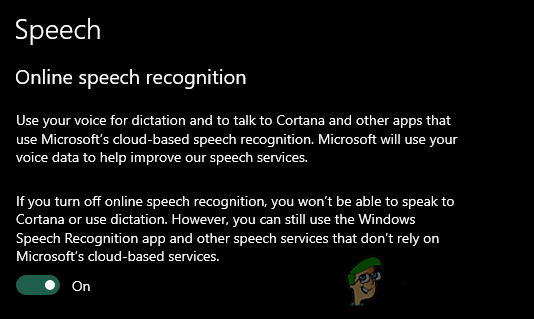
- Speech to text windows install#
- Speech to text windows update#
- Speech to text windows full#
- Speech to text windows windows#
The key and region are stored for future SPX commands. To configure your Speech resource key and region identifier, run the following commands in PowerShell: spx -% config -set SPEECH-KEY To view the current configuration, run the following commands: spx config config needed, include the clear option to remove either stored value: spx config -clear The key and region are stored for future Speech CLI commands. To configure your resource key and region identifier, run the following commands: spx config -set SPEECH-KEY For more information, see Create a new Azure Cognitive Services resource.

Create a Speech resource on the Azure portal. To get started, you need a Speech resource key and region identifier (for example, eastus, westus). docker run -it -rm -entrypoint /bin/bash -v c:\spx-data:/data msftspeech/spx The keys will automatically be stored for later use. You can combine that with AZ Login and have SPX Init guide you through creating the speech keys and selecting a matching data region without having to use the Azure web portal. On Windows, enter this command to start a container that exposes an interactive command-line interface where you can enter multiple spx commands: docker run -it -entrypoint=/bin/bash -v c:\spx-data:/data -rm msftspeech/spx For example, on Windows, this command sets your key: docker run -it -v c:\spx-data:/data -rm msftspeech/spx config -set SUBSCRIPTION-KEYįor more extended interaction with the command-line tool, you can start a container with an interactive Bash shell by adding an entrypoint parameter.
Speech to text windows full#
To use the spx command installed in a container, always enter the full command as shown in the preceding sample, followed by the parameters of your request. sudo docker run -it -v ABSOLUTE_PATH:/data -rm msftspeech/spx If you run this command before setting your key and region, you'll get an error that tells you to set your key and region. The pwd command returned this path in the previous section. Replace ABSOLUTE_PATH with the absolute path for your mounted directory. On Linux or macOS, your commands look like the following sample. On Windows, your commands start like this: docker run -it -v c:\spx-data:/data -rm msftspeech/spx When you're calling the spx command in a Docker container, you must mount a directory in the container to your file system where the Speech CLI can store and find configuration values and read and write files. This documentation shows the Speech CLI spx command used in non-Docker installations. You'll use the absolute path when you call the Speech CLI.

On Linux or macOS, enter this command in a terminal to create a directory and see its absolute path: mkdir ~/spx-data On Windows, enter this command to create a local directory that the Speech CLI can use from within the container:

When you're using the Speech CLI within a Docker container, you must mount a local directory from the container, so the tool can: It loads these files when you're performing any command (except help commands). The Speech CLI tool saves configuration settings as files.
Speech to text windows install#
Speech to text windows windows#
Windows Terminal supports all fonts that the Speech CLI produces interactively. On Windows, the Speech CLI can show only fonts that are available to the command prompt on the local computer.
Speech to text windows update#
To update the Speech CLI, enter this command: dotnet tool update -global Įnter spx or spx help to see help for the Speech CLI. NET CLI by entering this command: dotnet tool install -global Installing it for the first time might require a restart. Install the Microsoft Visual C++ Redistributable for Visual Studio 2019 for your platform. Follow these steps to install the Speech CLI on Windows:


 0 kommentar(er)
0 kommentar(er)
